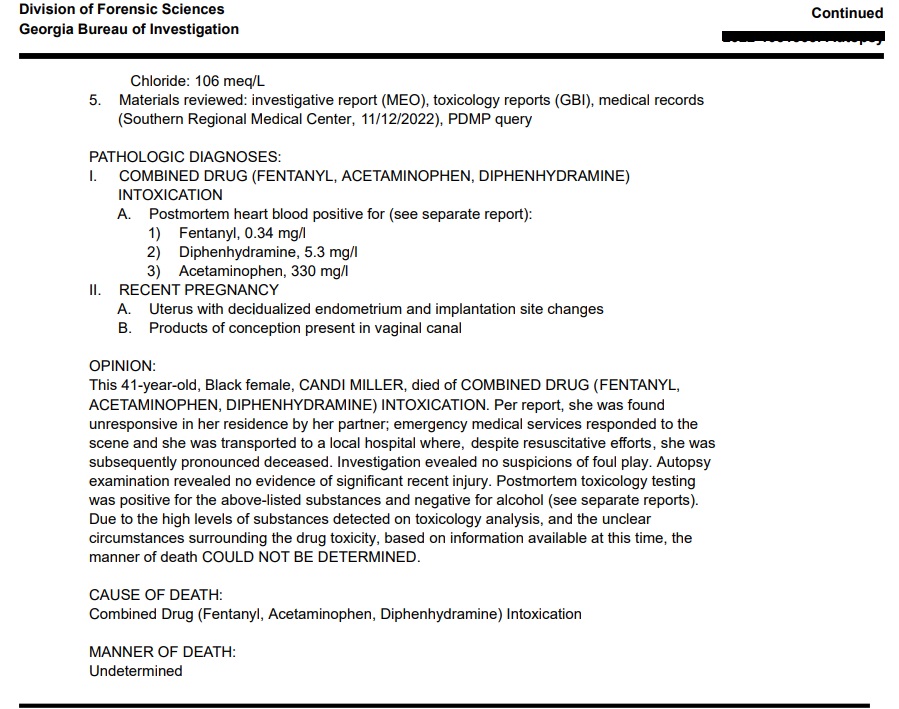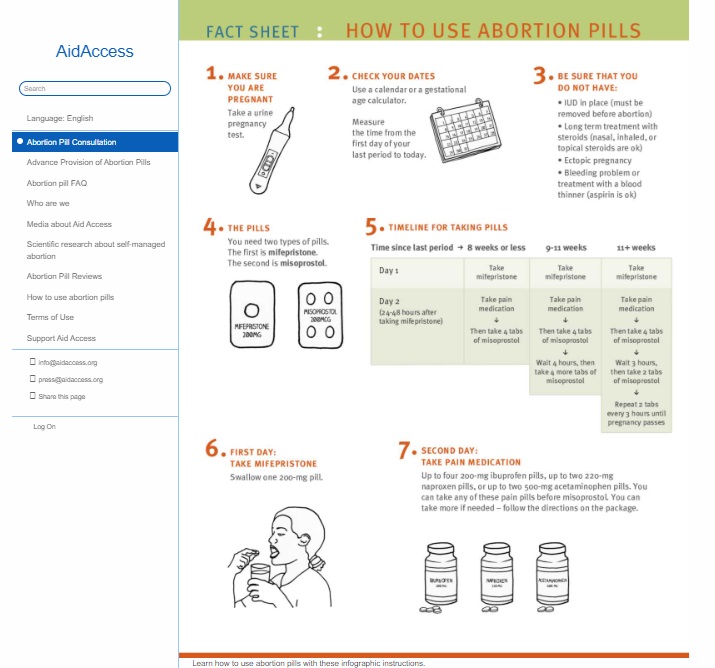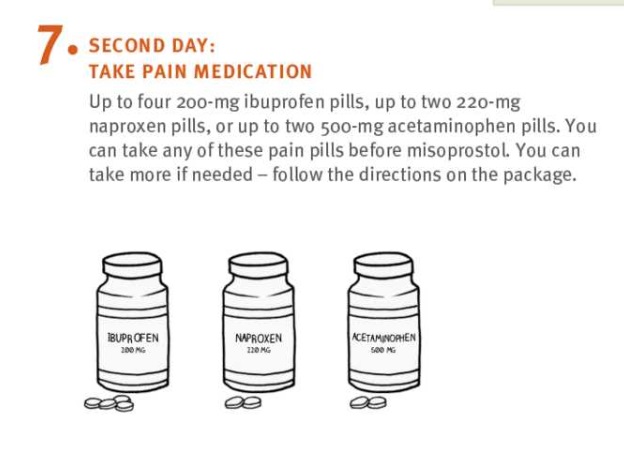The abortion pill death of a 41-year-old pregnant woman in Georgia has been blamed on pro-life laws — but a review of the autopsy report of Candi Miller provides more questions than answers. Miller allegedly ordered abortion pills online from the international virtual dispensary Aid Access. Details of her case were first reported by ProPublica, with the outlet quickly blaming Georgia’s pro-life laws for her death, which occurred in November of 2022.
Live Action News reached out to the Clayton County Medical Examiner’s Office (ME) to obtain a copy of Miller’s autopsy, the investigative report, and death certificate, among other documents.
While Miller appeared to be pregnant at the time of her death, the report oddly contained no reference to the preborn child’s gestational age. The toxicology report revealed three drugs in Miller’s system: fentanyl (0.34 mg/L) diphenhydramine (5.3 mg/L), and acetaminophen (330 mg/L). Diphenhydramine is the main ingredient in Benadryl and acetaminophen is the active ingredient found in Tylenol.
As seen below in the death certificate sent to Live Action News, the “immediate cause” of death was noted as “Combined drug (Fentanyl, acetaminophen, diphenhydramine),” and the report also reads, “drug toxicity under unknown circumstances.” The “manner of death” was “undetermined” though foul play was not suspected.
Ultimately, it remains unexplained as to how Candi Miller’s death could be reasonably blamed on the existence of a pro-life law.

Timeline Of Events Based on Documentation
Live Action News reviewed the documents, determining the following timeline:
May of 2022: “The decedent’s last hospitalization was in May of 2022 after a motor vehicle accident. The decedent’s son believes that she suffered a dislocated collar bone. She was treated at Grady Medical Center…”
November 9, 2022: “the decedent reportedly took an abortion pill that she ordered online.”
November 11, 2022, 10:00pm: “decedent’s husband returned… after being discharged from the hospital due to a medical episode at work… No complaints were voiced by the decedent at that time as she was assisting her husband in his recovery.”
November 12, 2022, 2:00am: “the decedent’s husband woke up and went to check on the decedent. He discovered her unresponsive and 9-1-1 was contacted. He initiated CPR. Upon EMS arrival, resuscitative measures continued en route to Southern Regional Medical Center.”
November 12, 2022, 2:16pm: “decedent arrived [at the hospital].”
November 12, 2022, 2:22am: “Despite all efforts decedent was pronounced [dead]… by Doctor Marlena C. Cain, MD.”
November 17, 2022: Autopsy examination was conducted.
Investigative Report Findings
The investigative report was conducted on November 12, 2022, by an officer dispatched to the Southern Regional Medical Center after the 41-year-old Miller was pronounced dead. It read, in part:
The decedent’s medical history consisted of Lupus, diabetes, high blood pressure, and she is currently pregnant. The decedent’s husband stated that the decedent has ongoing issues related to her lupus. For approximately one month, the main complaints voiced by the decedent were her feet being swollen and heavy vaginal bleeding. The decedent was only able to stand on her feet for short periods of time.
The decedent’s husband was not sure how far along the decedent was in her pregnancy. She did not go to an OBGYN due to the current legislations on pregnancies and abortions. On 11/9/22, the decedent reportedly took an abortion pill that she ordered online. The husband was not aware of the name of the pill, only that she purchased it from a company based in India. The decedent has three other children, the youngest being 3 and 14. This investigator inquired if the decedent had any complications with the pregnancy or delivery of her three-year-old daughter. The husband stated that the decedent did have complications, however, he could not recall the specifics. The decedent was prescribed several unknown medications.
She was reportedly compliant. She did not have a history of drug abuse or illicit drug history. The decedent’s last hospitalization was in May of 2022 after a motor vehicle accident. The decedent’s son believes that she suffered a dislocated collar bone. She was treated at Grady Medical Center, The decedent’s husband was aware that one of the decedent’s doctors was located on Cleveland Avenue, but he could not provide any more information. Her last doctor’s visit was not known. He and the decedent’s son insisted that the decedent was very private when it came to her medical information.
There is no investigating agency currently assigned to this case. At this time, this death is being viewed as natural. There are no current suspicions of foul play.
Further down, the report stated:
- Cause and Manner of Death Determined By: ME Office
- Immediate Cause of Death: Combined Drug (Fentanyl, Acetaminophen, Diphenhydramine)
Intoxication - How Injury Occurred: drug toxicity under unknown circumstances
Attempts to blame Georgia’s pro-life law in Miller’s case fall flat, though ProPublica claims that a “state committee of experts in maternal health” did just that, due to the fact that Miller had underlying health conditions and chose to self-manage her abortion. But Miller obtained the abortion pills legally from an online dispensary — which the abortion industry claims is totally safe for self-managing an abortion. She may have experienced severe pain and cramping as a result of the pills, which are known side effects. She may have taken pain medications as a result. And it appears that she died due to “combined drug intoxication.”
Had her abortion been legal in Georgia, Miller may have obtained the exact same pills, experienced the exact same side effects, and potentially taken the exact same medications. Who is this anonymous “state committee of experts in maternal health,” and how is it logical for them to blame a pro-life law?
Well, it isn’t. After all, several women have died after taking the abortion pill in jurisdictions that have few or no abortion restrictions at all. What should we blame for their deaths?
Autopsy and Toxicology: Drug Intoxication
The Medical Examiner reviewed the toxicology reports and medical records and determined that Ms. Miller’s postmortem heart blood was positive for…
- Fentanyl, 0.34 mg/L
- Diphenhydramine, 5.3 mg/L
- Acetaminophen, 330 mg/L.
… with a recent pregnancy.
It was the opinion of the ME that Miller died of “Combined drug (Fentanyl, acetaminophen, diphenhydramine) intoxication.”
He then ruled the manner of death as “Could Not Be Determined.”

Candi Miller abortion pill death autopsy cause of death
Questions No One Seems to Be Asking
According to ProPublica, “When Miller learned she was pregnant again in 2022, she ordered abortion pills for about $80 from a website called AidAccess, according to her [teenaged] son, Christian Cardenas.”
It is unclear how Miller’s teenaged son knew where the abortion pills came from, but Miller’s significant other was unsure of this on the date of her death. The ME also did not identify the specific abortion drugs used; no dosage or drugs were named besides the ones causing the “intoxication.”
Aid Access, where Miller obtained the abortion pills, was founded by Dutch abortionist Rebecca Gomperts, who also co-founded Women on Web and Women on Waves in 2018. Until recently, the group’s abortion pills were likely shipped into the United Stated through India without FDA approval. In March of 2019, the U.S. Food and Drug Administration (FDA) sent a warning letter to AidAccess.org to cease shipments of the pills to the U.S.
In 2022, Glamour Magazine described the Aid Access process this way: “In states where medication abortion is legal, patients who use its website are referred to local doctors who prescribe the pills, which an online pharmacist fills. Costs max out at $150.”
“In states where abortion is illegal, the requests come in to Gomperts herself. She writes the prescriptions, making use of her Austrian medical license. A distributor in India ships the medication into the United States. ‘I’m doing Texas and all the states where it’s banned,’ Gomperts adds, with evident pride,” added Glamour.
Did Aid Access continue to bring in pills from India, despite the warning letter from the FDA?
Did Miller Take the Full Abortion Pill Regimen?
It is generally thought that the embryo or fetus will be expelled within 4-5 hours after the last drug in the abortion pill regiment (mifepristone/misoprostol) is taken. But it is unclear from the documents obtained whether Miller took both pills on November 9th, or whether she had only taken the first pill, mifepristone.
Is anyone asking?
Aid Access archives from November 2022 show that abortion clients at that time were instructed to take the first drug, mifepristone, on “Day 1,” and the second drug, misoprostol, 24-48 hours later.
Given that Miller took abortion pills on November 9th, is it possible she had not even started the second dose when she was found unresponsive on November 12, 2022?
This could explain why the ME found that she was still pregnant.
In this scenario, it appears that Miller was not yet suffering from an incomplete abortion and would not have been instructed to seek additional care.

Candi Miller abortion pill instructions from Aid Access for 2022
Was Miller Experiencing a Continuing Pregnancy Despite Taking the Abortion Pill?
Candi Miller was found unresponsive on November 12th, just three days after taking abortion pills or at least starting the process.
Yet, according to an archived website at AidAccess.org, in 2022, the online abortion pill distributor was suggesting to women that there was no concern about retained products of conception until weeks after they took the drugs.
“Even if you bleed, you can still have a continuing pregnancy. Bleeding does not mean that you have had a successful abortion. If you still have symptoms of pregnancy such as sore breasts or nausea, you may be experiencing a continuing pregnancy. You should have an ultrasound within a week or do a pregnancy test 3 weeks later to confirm that the pregnancy has ended. Most pregnancy tests that are done 3 weeks after the abortion are reliable. It is necessary to wait 3 weeks after the abortion because the pregnancy hormones can remain in the body and can make the pregnancy test falsely positive,” Aid Access wrote the end of October 2022.
“Medical abortion, like miscarriage, is a process that takes place over time and the body might take several weeks to fully expel all the tissues and products in the uterus. This is normal,” Aid Access added. “If you want, you can have an ultrasound about 10 days after taking the medicine just to confirm as soon as possible that the pregnancy has ended.”
“Even if the pregnancy has ended, many women will still have tissues and blood inside the uterus for several weeks. If you do not have any symptoms of complications like strong pain in the belly, continuous fever, very strong bleeding, smelling vaginal discharge, there is no need for any surgical intervention, like vacuum aspiration, even if the doctors suggest this. One can wait until after the next menstruation or take 2 tablets of Misoprostol under the tongue,” the Aid Access website stated.
Even if Miller knew she had an incomplete abortion, Aid Access appeared to downplay the seriousness of this, telling their clients they could simply take more drugs. The site instructed women to take “2 tablets of Misoprostol or/and a vacuum aspiration (curettage)” if experiencing “incomplete abortion” indicated by “heavy or persistent bleeding and/or persistent severe pain.” The site noted indicators of “infection” such as fever, and stated that the treatment for this would be “antibiotics and/or vacuum aspiration.”
OBGYN Dr. Ingrid Skop told Live Action News that, based on her review of the autopsy, she believes the abortion had been completed but the baby’s remains had not yet been fully expelled.
“Regarding the autopsy: pathologic examination documented uterus with ‘decidualized endometrium and implantation site changes.’ This means that a pregnancy had recently been located inside the uterus but was no longer there,” Dr. Skop stated. “It also documented ‘products of conception present in the vaginal canal’. Candi Miller had recently completed expelling the aborted tissue from the uterus to the vagina, although it had not yet been expelled from her body.”
Why were Three Drugs Found in Miller’s System?
The autopsy and investigative report indicate that Fentanyl, diphenhydramine (main ingredient in Benadryl) and acetaminophen (active ingredient found in Tylenol) were all found in Miller’s system.
It should be noted that the media often suggests that Tylenol can be more dangerous than the abortion pill, yet it is often sold or suggested for pain relief inconjunction with deadly abortion drugs.
At the time of Miller’s death, AidAccess.org was instructing clients to take “ibuprofen pills,” “naproxen pills,” and “acetaminophen pills” for pain, and to do so “before misoprostol.”
Ibuprofen and Naproxen are both nonsteroidal anti-inflammatory drugs (NSAIDs).

Candi Miller abortion pill instructions pain pills – Aid Access for 2022
Women are often told that taking the abortion pill will feel like a very strong period, with cramping and bleeding. However, women often report severe pain when taking the drugs.
“This can be an intensely painful process, as documented in the Arena article, causing [Miller] to inadvertently overdose on fentanyl, Tylenol and ibuprofen,” Dr. Skop told Live Action News.
Could intense pain have led Miller to take acetaminophen? And why did she take diphenhydramine (Benadryl)?
“Use acetaminophen and diphenhydramine exactly as directed. An overdose of acetaminophen can damage your liver or cause death. Taking too much diphenhydramine can lead to serious heart problems, seizures, coma, or death,” warns Drugs.com.
The dosage size of the prescription form of Tylenol with Codeine is 300mg, slightly under what was found in Miller’s system, according to Drugs.com. Did ProPublica or Georgia authorities attempt to find out whether Miller received a prescription for the acetaminophen found in her system?
Where Did Miller Obtain Fentanyl?
According to the Centers for Disease Control and Prevention (CDC), “There are two types of fentanyl: pharmaceutical fentanyl and illegally made fentanyl. Both are considered synthetic opioids (made in a laboratory).”
“Fentanyl is extremely potent, which means just 2 to 3 milligrams of this drug can lead to death due to respiratory depression (decreased breathing), which can quickly lead to coma and death,” stated Drugs.com.
One of the side effects of fentanyl is swelling of feet and unusual bleeding or bruising, reports Drugs.com. Notably, the investigative report claimed, “The decedent’s husband stated that the decedent has ongoing issues related to her lupus. For approximately one month, the main complaints voiced by the decedent were her feet being swollen and heavy vaginal bleeding” (emphases added).
Is this simply coincidental, or could Miller have used fentanyl prior to the days leading up to her death?
Media outlets seem surprisingly uninterested in where the fentanyl found in her system originated. If from a physician, when was it prescribed and why? Did that physician know she had taken abortion drugs? If illegal, is there an open investigation to determine the source and hold the perpetrator to account?
ProPublica noted that the possibility of the abortion pills themselves being tainted was dismissed outright, writing, “Considering the quantity of drugs and the timing of her death, the committee also did not suspect the abortion pills themselves were in any way tainted.”
Despite this, it is true that many women are ordering abortion drugs from unregulated virtual abortion pill dispensaries outside the United States. And just last year, the U.S. Drug Enforcement Administration sent out warnings that fake prescription pills entering the United States may “contain a potentially lethal dose of fentanyl.” Aid Access patients reportedly “contact a doctor in Europe who sends them pills from a supplier in India.”
At the time of Ms. Miller’s death, the state of Georgia was growing concerned about an illegal fentanyl problem. According to the Georgia Department of Public Health, the total number of opioid-involved overdose deaths in Georgia increased by 302% from 2010 to 2022. In 2016, then-Attorney General Chris Carr initiated a Statewide Opioid Task Force to take on the problem.
Editor’s Note, 9/24/24: A time has been corrected from am to pm, and other changes have been made for the sake of clarity.







